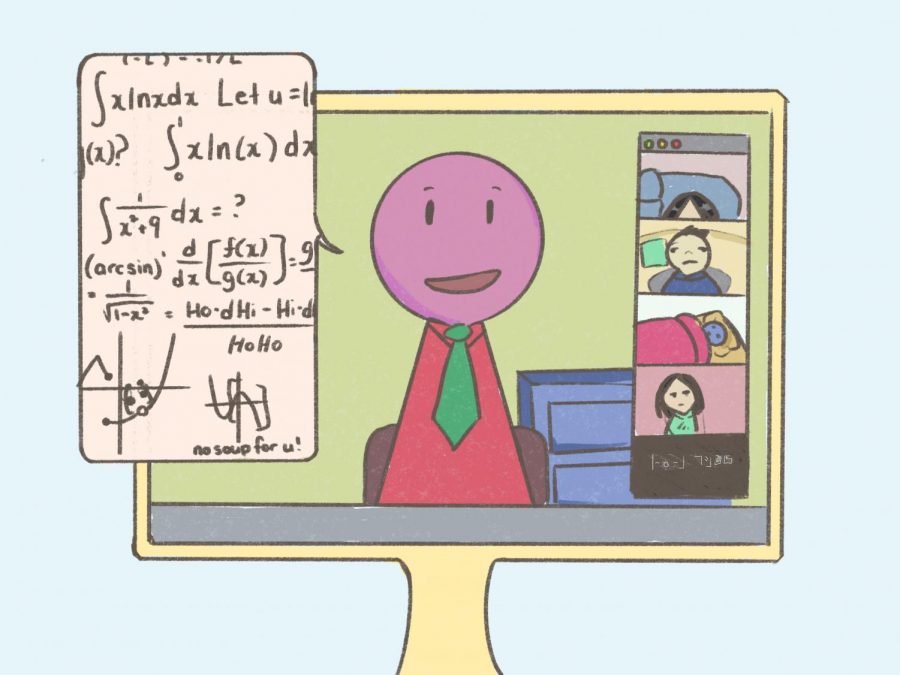Online tutoring has both ups and downs for student tutors
MCPS recently launched a free 24/7 online tutoring service for students in grades 3 to 12.
For students, 2020 has been a year full of adapting to virtual formats, and for RM tutoring clubs, this is no exception. Clubs such as Generation Z, which focuses on giving academic support and homework help to local elementary and middle school students, and Twinbrook Tutors, which centers around helping Twinbrook Elementary School students develop a love for STEM, have found ways to use virtual platforms to assist young students all over Montgomery County.
This year has forced student tutors to face challenges like never before. Due to the COVID-19 pandemic, RM tutors have had to abandon in-person sessions and instead learn to navigate virtual meetings using platforms such as Zoom or Google Meets to set up sessions with their tutees. Unfortunately, many have found it difficult to connect with their students and keep them engaged with this format.
Problems such as tutees’ reluctance to keep their cameras on, connection issues and finding ways to explain concepts to young students virtually are just a few of the issues that arise with this online format — issues that would have never occurred in prior years of in-person tutoring.
“Not having the resources you would have in-person to really engage your tutee is kind of frustrating,” junior Emma Chen, a member of Generation Z, said. “For example, I feel like we waste so much time trying to write out things on Zoom when we could have gone through many more problems if we didn’t have that issue.” Chen’s sentiment is shared by many tutees. Maintaining students’ attention seems to be one of the biggest challenges of online tutoring, especially since it is common for young students in elementary school to be easily distracted.
As Vice President of Generation Z, junior Courtney Kim and the rest of the club’s leadership team receive many emails from their members asking for advice on virtually assisting their tutees. “Open and consistent communication is key, [and] also continue asking questions and try to get to know your tutee and their interests,” Kim stated, going on to explain how incorporating the tutees’ own interests into the lesson plan keeps the student involved, which is vital for online learning.
Because of these frequent requests for guidance, Gen Z leadership has assisted tutors this year by adding resources to their website and creating a tutorial that explains how to conduct tutoring on virtual platforms, which has been a huge help for members. Additionally, tutors use online tools such as Kahoot and Quizlet to make their tutoring sessions more fun and engaging for their tutees.
Senior Tatiana Velarde, a new Generation Z member, works with a fourth-grader with ADHD and has depended on online resources to keep her tutee invested while tutoring. Velarde said, “I have been using Quizlet, Kahoot and Google Slides, which [my tutee] seems to enjoy. And during breaks, I also have been using Spotify as a bit of an icebreaker.”
Like Generation Z, Twinbrook Tutors work closely with their students to support their academic needs; however, they initially struggled to find Twinbrook tutees in need of tutoring, which junior and Co-President Sui Sung believes could be due to young children not wanting to spend an extra hour staring at a screen every week.
Fortunately, the club has been able to recruit more tutees after reaching out to an additional elementary school and, henceforth, support more young children in their community. Sung stated, “Our goals are to create a love for STEM and to close the achievement gap by helping lower-income families access education.” Despite the obstacles put in place by virtual learning, Twinbrook Tutors are still striving to meet that goal.
Regardless of technological challenges, the number of RM tutors this year reached an all-time high. Sung described this record as “the most tutor sign-ups in Twinbrook Tutor history,” and Kim also explained how some Gen Z members are still waiting to be assigned a student due to the large number of tutors who applied.
This increase in tutors potentially stems from RM students searching for more ways to earn SSL hours — but another contributing factor may be that online tutoring is very flexible compared to in-person tutoring because there is no commute involved. Still, students like sophomore Alexandra Julka are truly happy to spend this time helping other students. Julka stated, “I love helping my tutee in any way I can, [and] I try to be her friend and yet also someone who can assist her.”
Although tutoring virtually has obvious hardships, the proud feeling of watching tutees finally understand a concept makes the challenges faced all worth it. Sung explained this feeling by saying, “Seeing them learn is my favorite part. It’s so satisfying when you teach a kid how to spell and they actually spell it. Or you teach them how to sound out words and then they’re able to do it on their own.”
Your donation will support the student journalists of The Tide, Richard Montgomery High School's student newspaper. Your contribution will allow us to purchase equipment and cover our annual website hosting costs.












